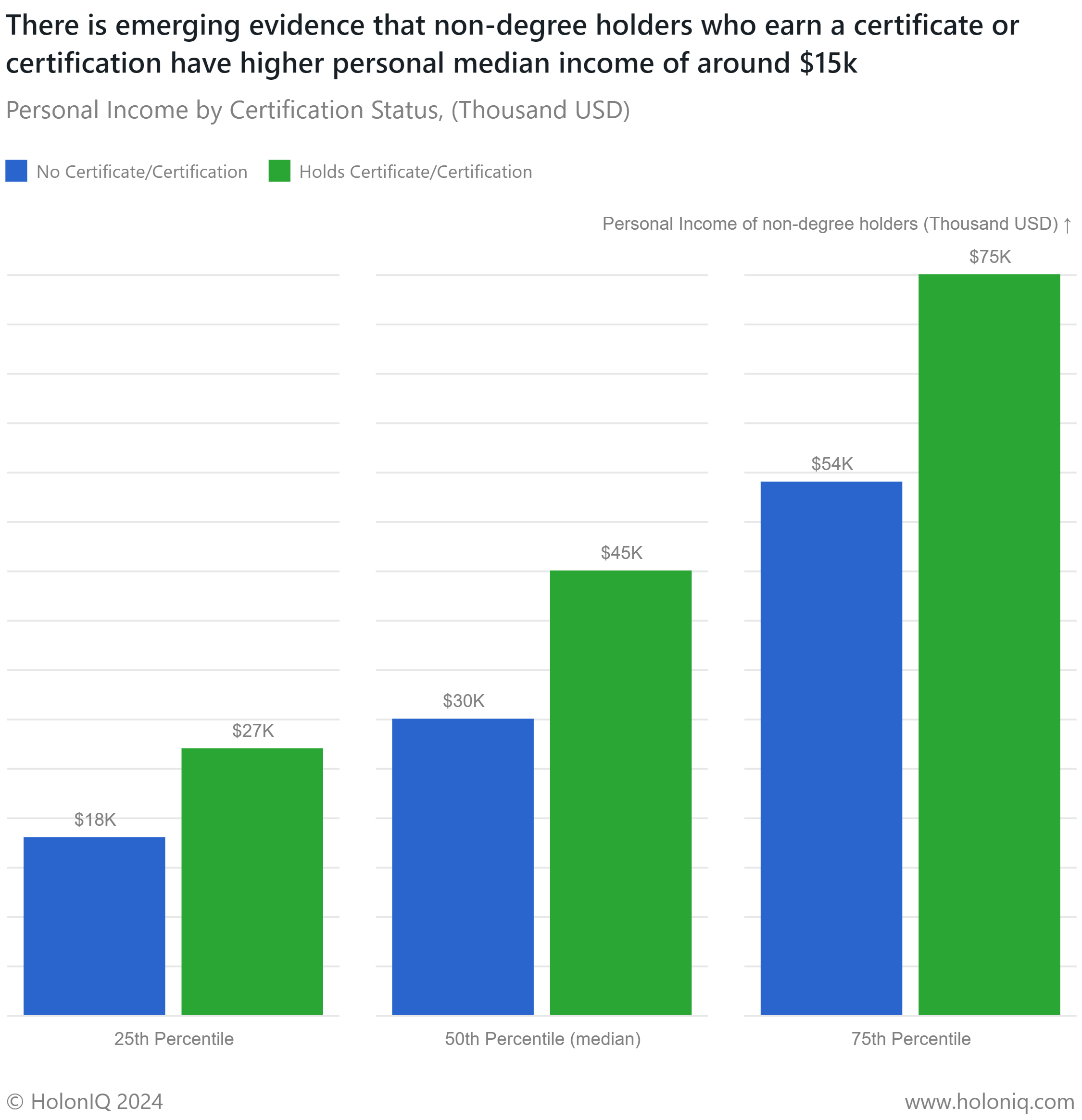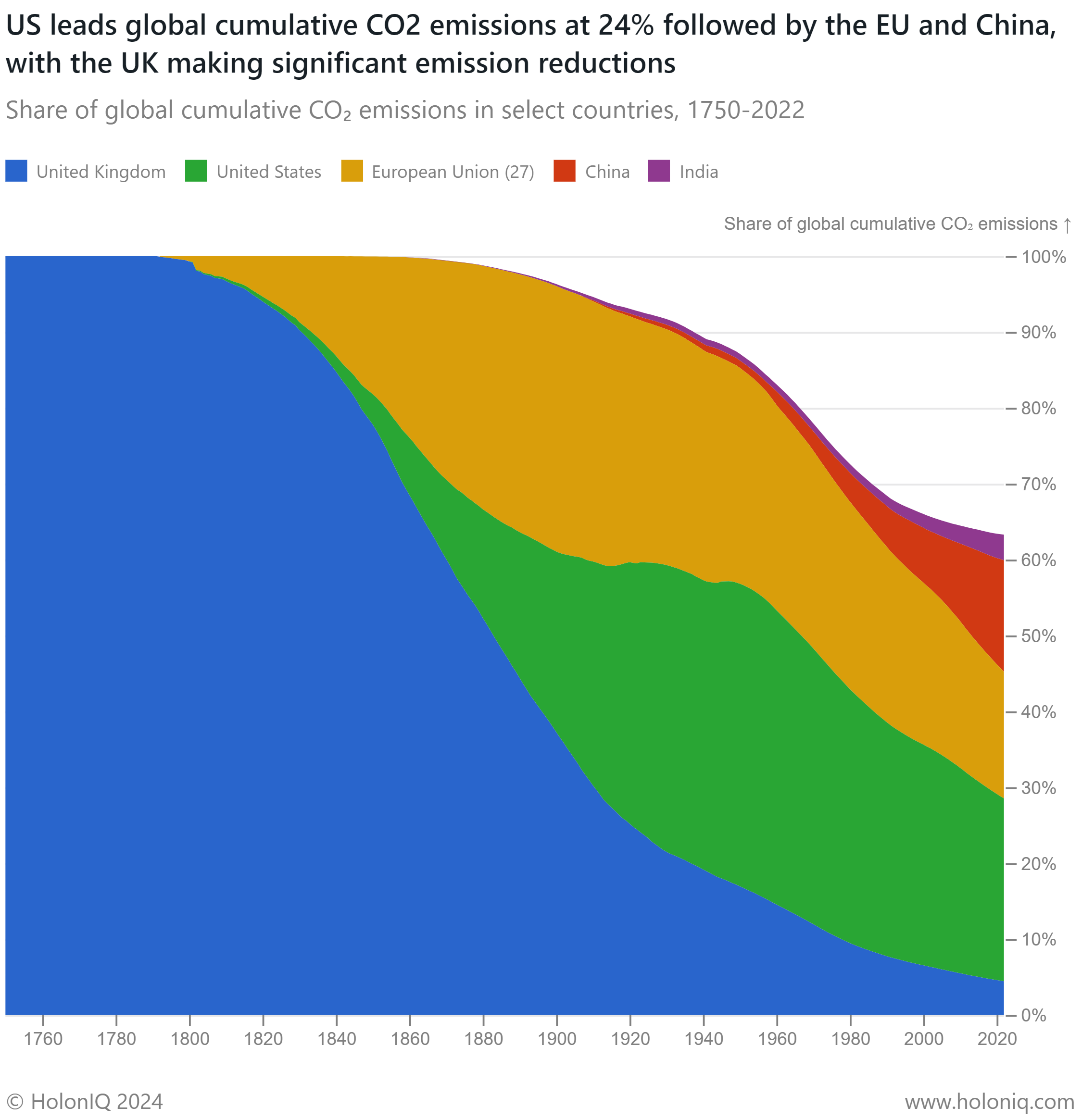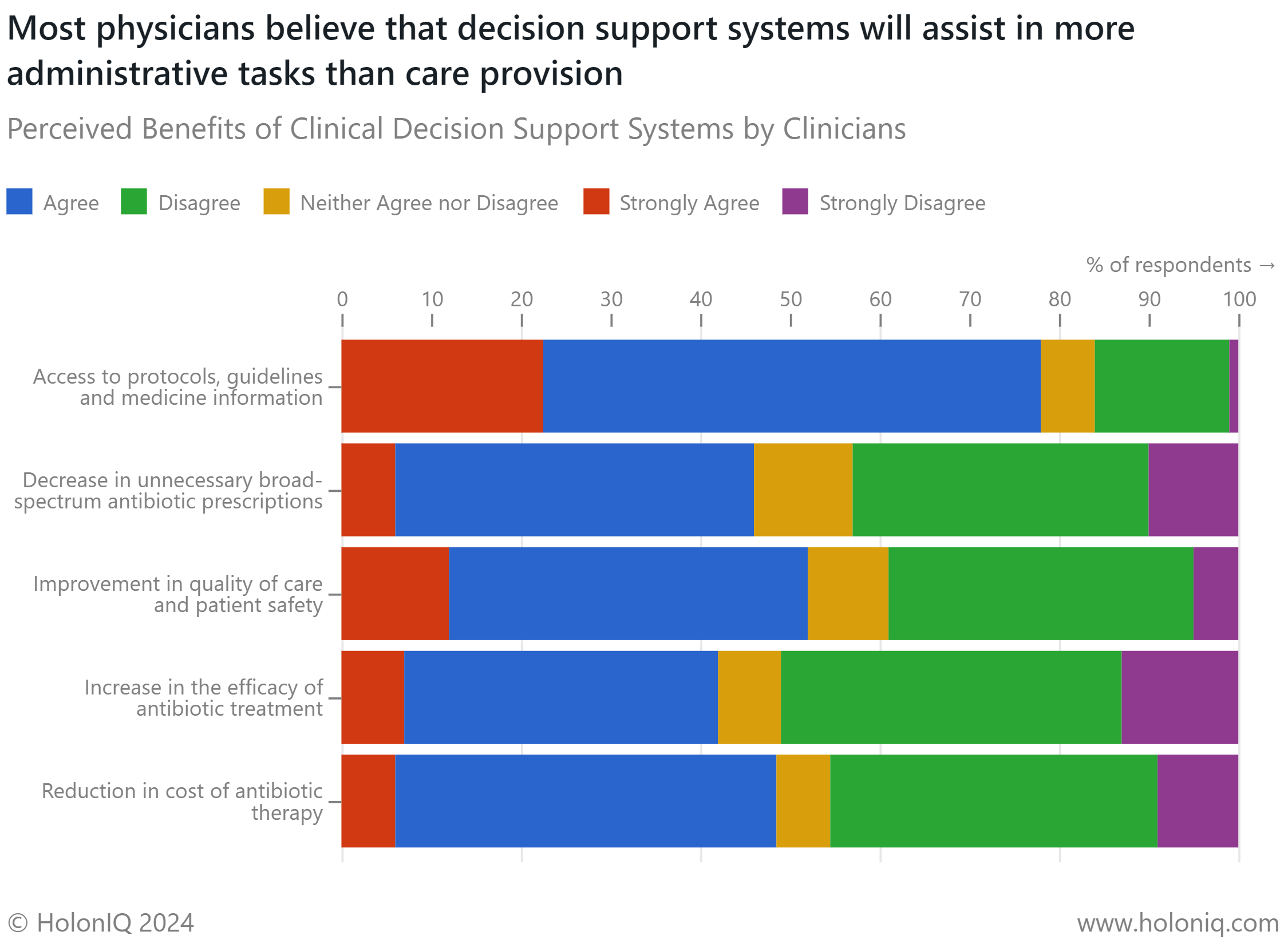📜 $15k Certification Edge. US Leads Emissions. 78% Back Clinical Decision Support.
Chart of the Day #13 looks at Higher Ed Certifications, CO2 Emissions and Clinical Decision Support Systems. For unlimited access to over one million charts, request a demo.
Today's Topics
- 📜 Higher Education. Non-Degree Holders With Certifications Earn $15,000 More.
- 🍃 CO2 Emissions. US Leads Cumulative Global CO2 Emissions to Date.
- 🧑⚕️ Decision support systems. Clinical Decision Support Systems Aid More in Admin Than Care.
Have feedback or ideas for us? Email hello@holoniq.com — we'd love to hear from you!
📜 Non-Degree Holders With Certifications Earn $15,000 More

Non-degree holders with certifications earn higher personal incomes than their non-certified counterparts, across all income brackets. For instance, in the 75th percentile, those lacking certification have an income of $54,000, in contrast to the $75,000 earned by those with certifications. This difference in earnings spans from around $9000 to over $21,000, between the 25th and 75th percentiles. This emphasizes the positive impact and value higher education certifications bring to an individual's earning potential in the workforce.
🍃 US Leads Cumulative Global CO2 Emissions to Date

The US leads in global cumulative CO2 emissions at 24.1% to date, but recent decades reveal a declining trend, particularly the UK, now contributing only 4.5%, down from 37% during the 1900s. The US' large share is mainly due to the Industrial Revolution. However, after the migration of most manufacturing activities to China, CO2 emissions from China reached 14.7% in 2022, doubling from 7.2% in 2000, thus becoming the largest CO2 emitter annually.
🧑⚕️ Clinical Decision Support Systems Aid More in Admin Than Care

The consensus among physicians is that clinical decision support systems in administrative tasks are the most valuable, with 78% of healthcare professionals in agreement. While a minority strongly disagrees with the system's helpfulness, it is apparent that most physicians view decision support systems as predominantly assisting in tasks including providing access to protocols, guidelines and medication information, rather than direct care provision.
Like getting this newsletter? For unlimited access to over one million charts, request a demo.
Thank you for reading. Have a great week ahead!
Have some feedback or want to sponsor this newsletter? Let us know at hello@holoniq.com
